
SHORTENED
SEASONS

SHORTENED
SEASONS
THE UNTIMELY DEATHS OF
MAJOR LEAGUE BASEBALLS
STARS AND JOURNEYMEN
FRAN ZIMNIUCH

Copyright 2007 by Fran Zimniuch
First Taylor Trade Publishing edition 2007
This Taylor Trade Publishing paperback edition of Shortened Seasons is an original publication. It is published by arrangement with the author.
All rights reserved. No part of this book may be reproduced in any form or by any electronic or mechanical means, including information storage and retrieval systems, without written permission from the publisher, except by who may quote passages in a review.
Published by Taylor Trade Publishing
An imprint of The Rowman & Littlefield Publishing Group, Inc.
4501 Forbes Boulevard, Suite 200, Lanham, Maryland 20706
Estover Road, Plymouth PL6 7PY, United Kingdom
Distributed by NATIONAL BOOK NETWORK
Library of Congress Cataloging-in-Publication Data
Zimniuch, Fran.
Shortened seasons : the untimely deaths of major league baseballs stars and journeymen / Fran Zimniuch.
p. cm.
ISBN-13: 978-1-58979-363-7 (pbk. : alk. paper)
1. Baseball playersUnited StatesBiography. I. Title.
GV865.A1Z55 2007
796.357092dc22
 The paper used in this publication meets the minimum requirements of American National Standard for Information SciencesPermanence of Paper for Printed Library Materials, ANSI/NISO Z39.48-1992.
The paper used in this publication meets the minimum requirements of American National Standard for Information SciencesPermanence of Paper for Printed Library Materials, ANSI/NISO Z39.48-1992.
Manufactured in the United States of America.
This is for the loved ones and friends left behind by the players chronicled in these pages.
It is also for those people in my life who had shortened seasons: my father, Eddie, and good friends Bill Wilson, Jim Gallagher, Jack Flanagan, and Carol Neall, who all died long before their time and all of whom I miss.
This is also for those who add joy and happiness to my life, my sons Brent and Kyle.

CONTENTS
by Larry Dierker

FOREWORD
In December 1974, I was visiting my family in Los Angeles during the Christmas holiday when I received a phone call from the Houston Astros. I was told that my teammate Don Wilson had died of asphyxiation in his garage, having fallen asleep in the car with the engine running. It appeared to be a suicide, but I didnt believe he would do that. Later, I spoke with another teammate, Jim Ray, who had seen him the previous day. Don was really fired up, Ray said. He told me he was in great shape and was planning on having a big year. All I could think was: Why did this happen? Indeed, how did it happen?
I returned to Houston and was a pallbearer at Dons funeral. It was so strange. He didnt even look like the same guy. I guess the cause of death changed his appearance. It changed my world view as well. Suddenly, I realized that I was vulnerable. Whatever symbolic immortality I would achieve on the diamond was dust. One day it would just drift away.
In June 2002, I got another disturbing phone call. Darryl Kile had died of a heart attack in a hotel room in Chicago. This didnt hit quite so close to home, but it still hurt. I had managed Darryl in 1997. He was perhaps the kindest, gentlest player I have ever known. Gonejust like that.
Many of his former teammates flew to St. Louis from all around the country to attend his memorial service. I saw sorrow on their faces. I thought about Darryls wife, Flynn, and his children. What would they do now?
I was 55 years old at the time and had already had heart surgery and brain surgery. I had come to an understanding of the inevitable. It was different when Don died. I hadnt even considered my own mortality at that time. Now, Darryls teammates would, perhaps for the first time, realize that they would eventually join him in the ranks of fallen warriors.
In Fran Zimniuchs book, Shortened Seasons, there is more than a measure of sweet sorrow. Sweet because the loss of someone you love offers the chance to tap into the deep feelings you had for them, feelings you may not have known were hidden in the folds of your heart and soul.
One of the blessings of the human experience is that we dwell not only in the present, but also in the past and future. The ability to remember and to look forward is one of the things that separates us from the animal kingdom. In this sense, losing a friend puts baseball in its proper place. It is a great game. Some say baseball is life. But until you share the tender moments of grief that come with the deaths of your own family and friends, you may not really realize that relationships are more important than ballgames.
Zimniuchs most recent book, Richie Ashburn Remembered, grew from a seed Ashburn left by his grave. What grew was beautiful, and that same beauty lies between the covers of Shortened Seasons. For Ashburn, like Wilson and Kile, was a unique and fascinating man. What Zimniuch captures is his life, not his death. In that way, his new book revives the images of baseball heroes who died too soon.
I hope that for you, as with me, this book will not be a funeral, but a celebration of life.
LARRY DIERKER

PREFACE AND
ACKNOWLEDGMENTS
Shortened seasons? How did such an idea come into being?
While researching a previous book about baseball great Richie Ashburn, I had the opportunity to learn a great deal about one of my heroes in life. Those who saw him play, listened to his broadcasts, read his newspaper articles, or simply met him on the street felt as if they had a personal relationship with Ashburn. They did not. But from researching his career and speaking with his family, former teammates, and opponents, a private side of a very public man became evident.
When someone we care about dies, the immediate mourning is intense, but then the sorrow fades as we push it into a more comfortable place in our psyche, a place all its own where the loss doesnt hurt quite as much with the passage of time. When you talk to old baseball players about events in their lives, or people who were important, there is almost a panic on their part to ensure that their thoughts are part of some public record. As anyone in any walk of life ages, leaving something behind becomes a goal worth living for.
Any baseball player who achieves a spot on a major league roster, even if just for a single game, is a talented athlete who ranks in the top percentile of his sport. Regardless of what success they achieved in their careers, players should be remembered and their accomplishments appreciated long after those spikes have been hung up.
Next page

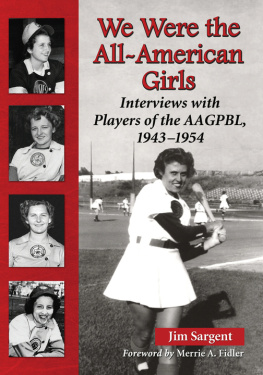
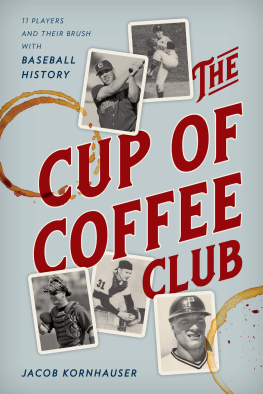

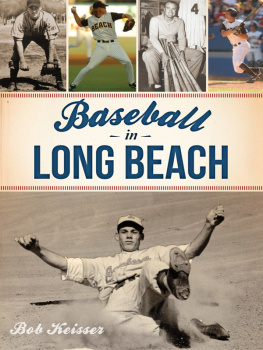
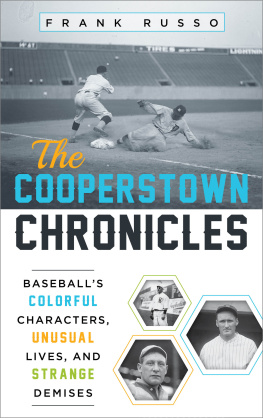

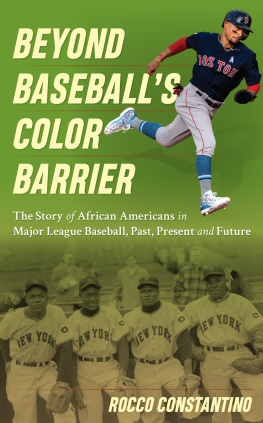
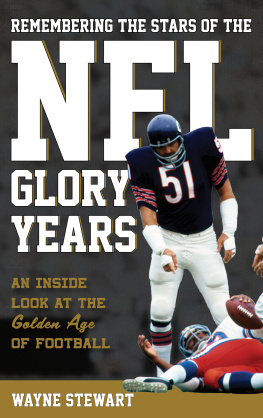
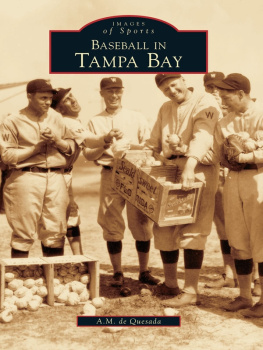


 The paper used in this publication meets the minimum requirements of American National Standard for Information SciencesPermanence of Paper for Printed Library Materials, ANSI/NISO Z39.48-1992.
The paper used in this publication meets the minimum requirements of American National Standard for Information SciencesPermanence of Paper for Printed Library Materials, ANSI/NISO Z39.48-1992.